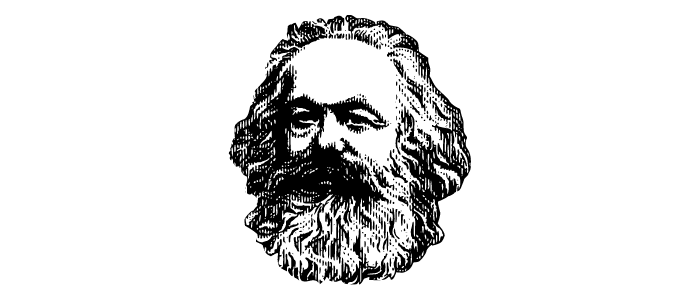Key Difference: The main difference between Dialectical Materialism and Historical Materialism is that Dialectical Materialism stresses the importance of change and evolution, while Historical Materialism focuses on the primacy of economic factors in social development.
They are both based on the Marxist theory of historical materialism, but Dialectical Materialism takes a more philosophical approach, while Historical Materialism is more concerned with applying the theory to real-world situations.
What is Dialectical Materialism?
Dialectical materialism is a philosophical theory that holds that matter is the basis of all reality.
It was developed by Karl Marx and Friedrich Engels, who believed that all aspects of society are determined by the relations between people and their material environment.
The main principle of dialectical materialism is that change occurs through the clash of opposing forces.
It is a dialectical philosophy, which means that it emphasizes the dynamic nature of reality. Hence, dialectical materialism is also known as the philosophy of change.
What is Historical Materialism?
Historical Materialism is the Marxist theory that holds that social and economic structures are the basis for all historical change.
According to this theory, changes in technology, production methods, and the mode of production create a need for different types of social organization, which in turn leads to changes in political and legal systems.
This theory is used by Marxists to explain how capitalism will eventually be replaced by socialism.
It is also used to analyze the current state of society and predict future changes.
Dialectical Materialism vs Historical Materialism
One of the biggest distinctions between Dialectical Materialism and Historical Materialism is that Dialectical Materialism stresses the importance of change, while Historical Materialism focuses on the importance of production.
Additionally, Dialectical Materialism favors a holistic approach to analyzing social phenomena, while Historical Materialism takes a more reductionist view.
Their difference can be summed up with the following analogy: Dialectical Materialism is like a river, which constantly changes its course, while Historical Materialism is like a rock, which remains stationary.
Main Differences
Key differences between dialectical materialism and historical materialism include –
Ideology
The two theories have different ideological goals. Dialectical Materialism is aimed at understanding the nature of reality and how change occurs.
On the other hand, Historical Materialism is aimed at understanding how changes in economic and social structures lead to historical change.
Methodology
Dialectical Materialism is based on the idea of dialectics, which means that it emphasizes the dynamic nature of reality.
Historical Materialism, on the other hand, is based on the idea of materialism, which means that it emphasizes the importance of the matter.
Here, Karl Marx and Friedrich Engels were influenced by the philosopher G.W.F. Hegel, who developed the theory of dialectics.
The Role of Class Struggle
Dialectical Materialism believes that change occurs through the clash of opposing forces whereas, historical materialism believes that change is driven by the class struggle between the bourgeoisie (owners of the means of production) and the proletariat (workers who sell their labor power).
This class struggle leads to changes in economic and social structures, which then lead to changes in other aspects of society.
The difference between the two theories can be summed up in Marx’s famous phrase, “The history of all hitherto existing society is the history of class struggles.”
Means of production
The difference between dialectical materialism and historical materialism has to do with their respective understandings of the means of production.
Dialectical materialism holds that the means of production are the basis of all reality, while historical materialism holds that social and economic structures are the basis for all historical change.
They differ in their understanding of how change occurs in society.
This difference is due to the fact that dialectical materialism is a dialectical philosophy, which emphasizes the dynamic nature of reality, whereas historical materialism is a Marxist theory, which is based on the idea of class struggle.
Scope
Dialectical materialism applies to all areas of reality, while Historical Materialism applies specifically to social and economic structures.
The scope of Dialectical Materialism is broader.
Basis of change
Dialectical materialism holds that change occurs through the clash of opposing forces, while Historical Materialism believes that changes in technology, production methods, and the mode of production create a need for different types of social organization.
The basis of change is different in these two theories.
Time frame
Dialectical materialism predicts future changes, while Historical Materialism attempts to explain past events and predict future ones.
Hence, the time frame covered by these two theories is different.
Is dialectical materialism historical?
Dialectical materialism can be interpreted in different ways. However, one way of looking at it is that dialectical materialism is historical in the sense that it believes that change is an inherent characteristic of reality.
The theory is based on the idea that everything in the world is in a state of flux, and that there are two basic forces at work in the world: change and stability.
It is the interaction of these two forces that leads to development and progress.
What is dialectical materialism in simple words?
Dialectical materialism is a philosophical theory that sees the world as constantly changing. It holds that everything in the world, including ideas and beliefs, is based on physical matter.
According to dialectical materialism, change is constant and everything is always in flux.
It is a theory that is often used by Marxists to explain how society works. It’s also sometimes called “materialist dialectics.”
The most famous proponent of dialectical materialism was Karl Marx.
What did Karl Marx mean by dialectical materialism?
Karl Marx meant that the material world, or the physical world we experience through our senses, is the foundation of all understanding and knowledge.
He believed that this physical world is constantly in motion and that change is an inherent property of reality.
For Marx, dialectical materialism was a way to understand how this process of change works.
He believed that it operated through the conflict and interaction of opposing forces, which he called dialectics.
